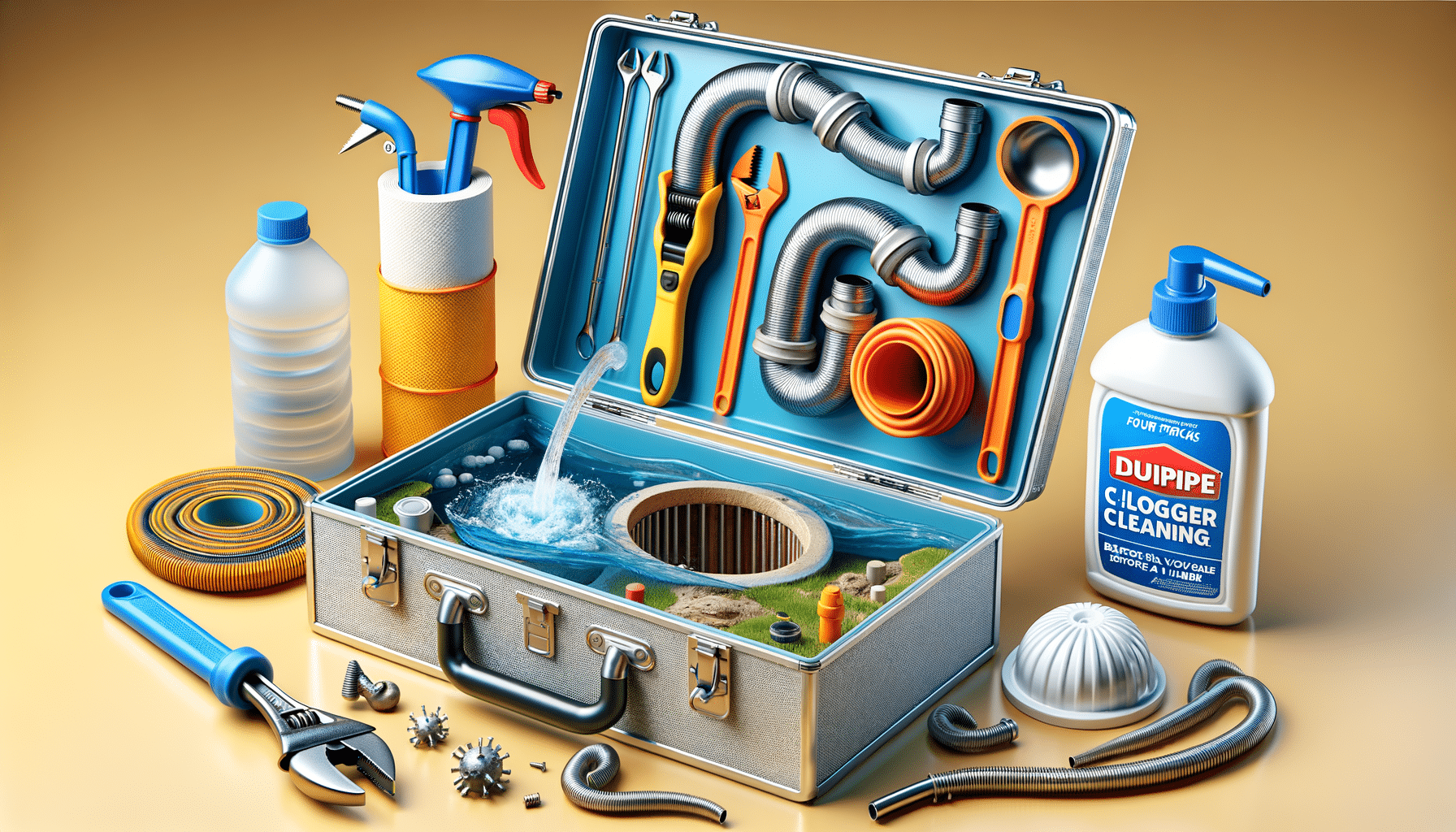
Clogged Drain? Try these 4 tricks before calling a plumber.
Understanding the Importance of Drain and Pipe Cleaning
Drains and pipes are the unsung heroes of our homes, tirelessly working behind the scenes to keep our daily lives running smoothly. However, when these essential components become clogged or damaged, the resulting issues can range from minor inconveniences to major disruptions. Regular maintenance and cleaning of drains and pipes are crucial to prevent blockages, reduce the risk of leaks, and extend the lifespan of your plumbing system.
Clogs can occur due to a variety of reasons, including the accumulation of hair, grease, food particles, and soap scum. These blockages not only slow down water flow but can also lead to unpleasant odors and potential water damage. By understanding the importance of regular cleaning, homeowners can avoid costly repairs and ensure their plumbing systems operate efficiently.
Moreover, keeping drains and pipes clean contributes to a healthier living environment. Stagnant water and debris can become breeding grounds for bacteria and mold, posing health risks to residents. Therefore, adopting regular cleaning practices is not just about maintaining functionality but also about safeguarding your home and health.
Common Causes of Drain Blockages
Understanding the common causes of drain blockages is the first step in preventing them. One of the primary culprits is the buildup of grease and oil, which solidifies over time and narrows the pipes. This is particularly common in kitchen sinks where cooking oils are frequently washed down the drain.
Another frequent cause of blockages is hair, which often accumulates in bathroom drains. When combined with soap scum, hair can form stubborn clogs that are difficult to remove. Additionally, food particles and debris can cause blockages in kitchen sinks, especially when not properly disposed of.
In some cases, tree roots can infiltrate underground pipes, seeking moisture and nutrients. This can lead to severe blockages and even pipe damage. To prevent such issues, regular inspection and maintenance of outdoor plumbing are recommended. By being aware of these common causes, homeowners can take proactive measures to prevent blockages and maintain a smoothly functioning plumbing system.
Effective DIY Methods for Drain Cleaning
Before reaching for the phone to call a plumber, there are several effective DIY methods you can try to clear a clogged drain. One popular method is using a mixture of baking soda and vinegar. This natural solution can help dissolve minor clogs and deodorize drains. Simply pour a cup of baking soda followed by a cup of vinegar down the drain, let it sit for 15-20 minutes, and then flush with hot water.
Another common tool is a plunger, which can be used to dislodge blockages in sinks and toilets. Ensure a tight seal around the drain, and use a firm, consistent motion to create suction and push the clog through. For hair clogs, a drain snake or a wire hanger can be effective in removing accumulated hair and debris.
For those who prefer commercial solutions, enzyme-based drain cleaners are a safer alternative to harsh chemical products. These cleaners use natural enzymes to break down organic material, effectively clearing clogs without damaging pipes or harming the environment. By employing these DIY methods, homeowners can tackle minor clogs and maintain clean drains without professional assistance.
When to Call a Professional
While DIY methods can be effective for minor clogs, there are situations where professional intervention is necessary. If you notice recurring clogs, slow drains, or multiple drains backing up simultaneously, it may indicate a more serious issue within your plumbing system. In such cases, a professional plumber can conduct a thorough inspection and identify the root cause of the problem.
Additionally, if you suspect tree root infiltration or if your plumbing system is old and prone to frequent issues, it is advisable to seek professional help. Plumbers have access to specialized tools and equipment, such as hydro jetting and video inspection cameras, which can effectively clear stubborn blockages and assess the condition of your pipes.
Investing in professional services not only resolves current issues but also helps prevent future problems. Regular maintenance by a qualified plumber can extend the lifespan of your plumbing system and provide peace of mind. Knowing when to call a professional is key to maintaining a healthy and efficient plumbing system.
Preventive Measures for Long-Term Drain Health
Prevention is always better than cure, and this adage holds true for drain and pipe maintenance. Implementing preventive measures can significantly reduce the likelihood of blockages and extend the life of your plumbing system. One simple practice is to use drain strainers in sinks and showers to catch hair, food particles, and debris before they enter the pipes.
Regularly flushing drains with hot water can help dissolve grease and soap scum, preventing buildup. Additionally, be mindful of what goes down your drains. Avoid pouring cooking oils and fats into the sink, and dispose of food waste properly.
For those with outdoor plumbing, regular inspection and maintenance can prevent root infiltration and other issues. Consider scheduling annual professional inspections to catch potential problems early and ensure your plumbing system remains in top condition.
By incorporating these preventive measures into your routine, you can maintain a healthy plumbing system and avoid the inconvenience and expense of frequent repairs.